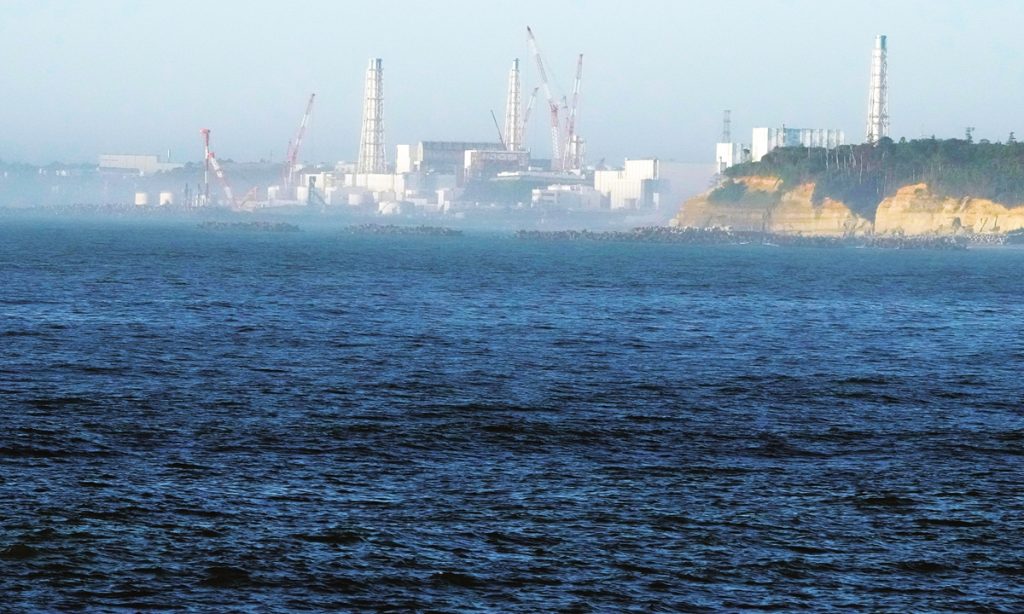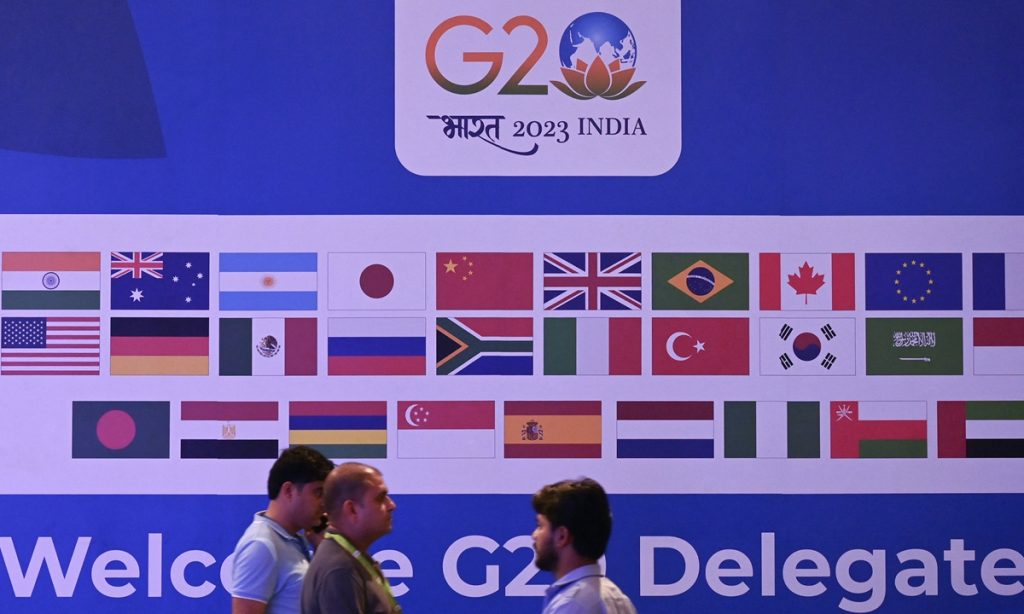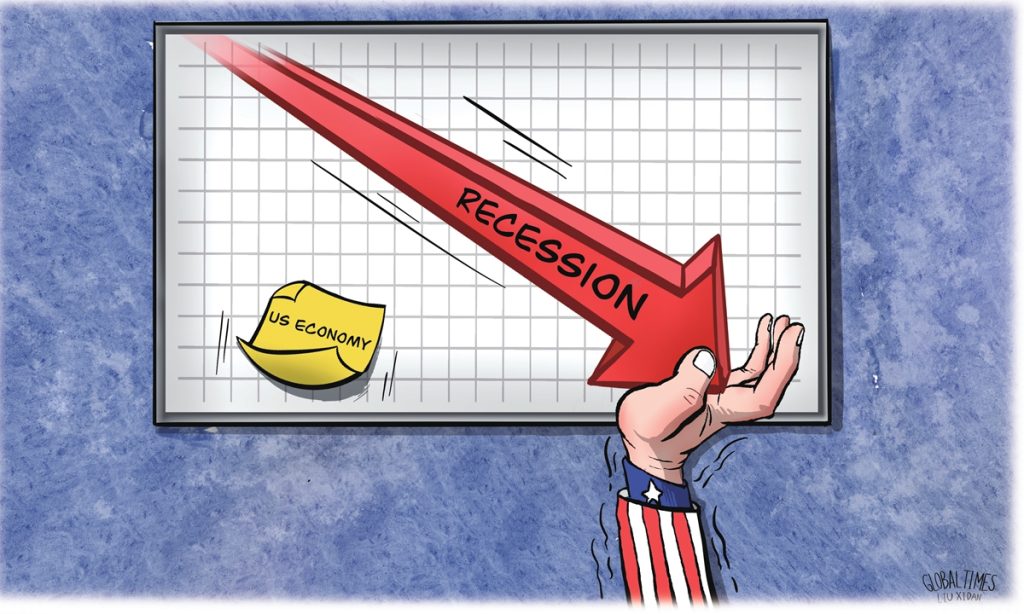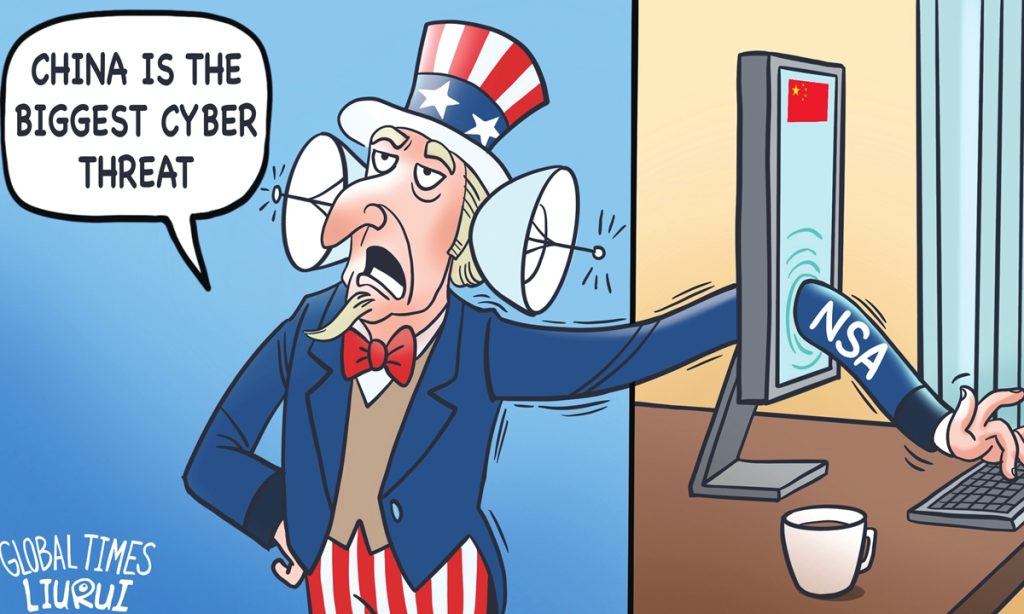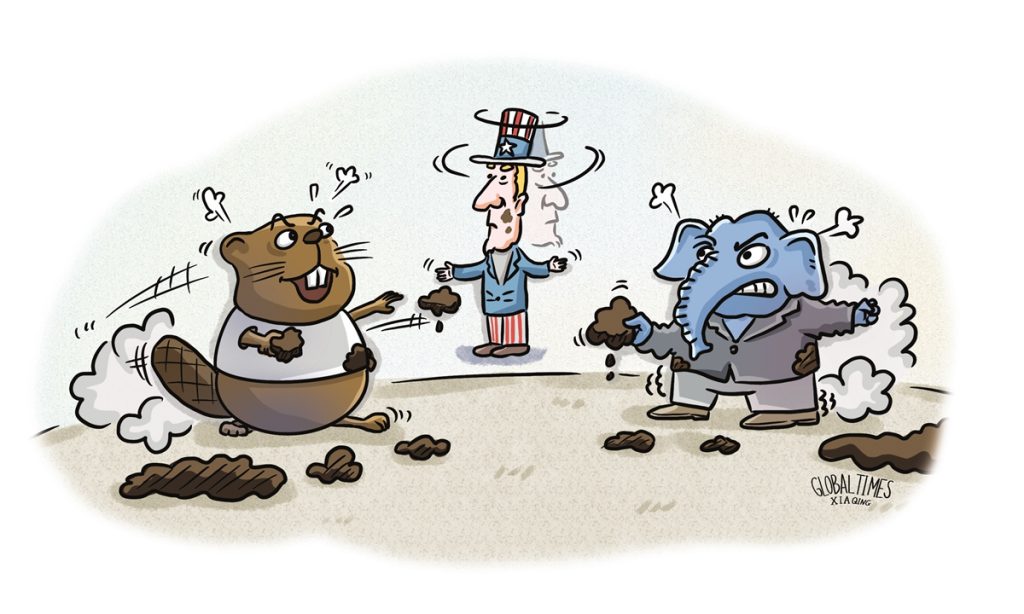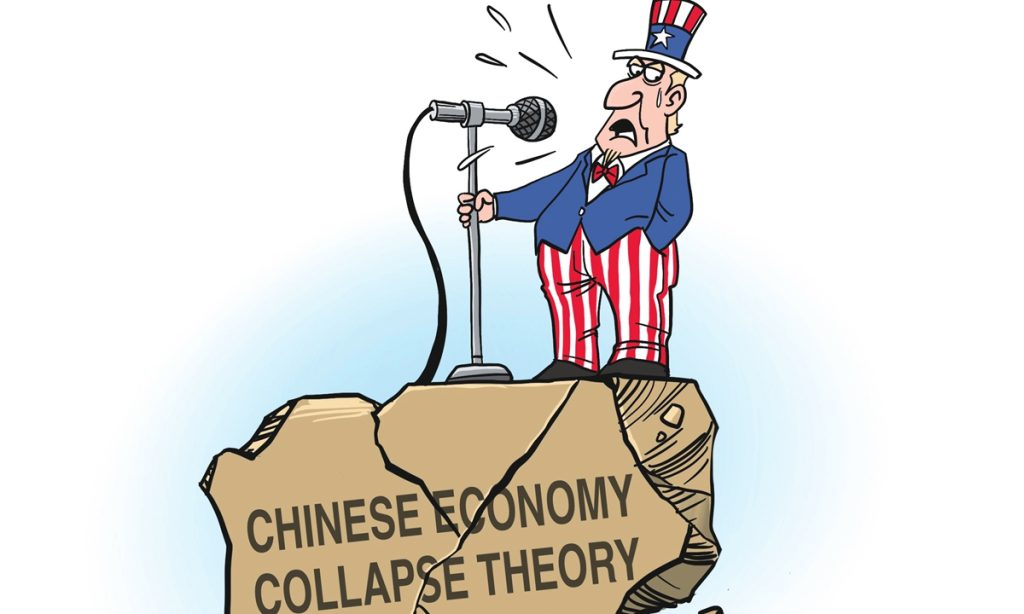Attack on infant girl in Sichuan drives Chinese society to improve dog management system

Normally, seeing people walking their dogs in the evening is a common sight in Beijing, including big dogs like golden retrievers, huskies and border collies.
But on Monday evening this week, the Global Times only saw one person walking her small teddy bear dog.
This might be because of reports that have gone viral on social media platforms claiming that Beijing regional authorities planned to inspect every local community on Monday to catch stray dogs and any illegal or unregistered pet dogs, or those being walked without a leash.
The inspection did not happen in the end, despite the claims online. But the Global Times learned from some dog breeders in Chaoyang that some people have been promoting high-end kennels - which cost 20,000 yuan ($2,736) per year - citing the so-called Monday inspections.
There are similar situations across the country and heated discussion over dog management, after a 2-year-old girl was reportedly seriously hurt by a rottweiler in Chongzhou, a county-level city in Chengdu, Southwest China's Sichuan Province.
The girl has got through the most dangerous period, media reports said, and was moved from intensive care to a normal ward on Monday. But the controversy over the news is growing, and many local authorities and property management companies are reportedly planning campaigns to strengthen local dog management, including catching and possibly even killing stray dogs.
The authorities in Xiamen, East China's Fujian Province, announced on Tuesday the launch of a rectification campaign against illegal dogs until December 30. The campaign will focus on illegal dog-raising behavior like failure to register the dog or conduct a yearly inspection, as well as raising certain fierce dog breeds that are banned in cities and walking dogs without a leash.
A security guard from Chongqing Technology and Business University was reported to have captured and killed a stray dog on October 17, sparking a backlash from the student body. Five days later, the school announced that it had fired the security guard on the grounds of inappropriate behavior during the disposal process.
On Tuesday, posts went viral on Chinese social media platforms claiming that Shanghai public security authorities broke into a local resident's home and took away a large dog. The Shanghai authorities had not responded to the claims as of Tuesday.
Dog owners are now hesitating to take out their pets, and dog lovers are angry about the action being taken against all dogs just based on one incident. Others have called for a more rational approach amid mixed information, and stressed that the most important thing is to complete an effective dog management system.
One dog bites, all dogs pay
The measures to try and catch stray dogs in several Chinese cities have worried some animal rights advocates and dog lovers, who complained the regional governments were using a one-size-fits-all approach.
"Many dogs become strays after being abandoned by their previous owners. They are poor and innocent," said an animal protection volunteer surnamed Wei. "Why do these cities punish the abandoned dogs rather than the people who abandoned them?"
Wei has been rescuing stray dogs and cats in Suzhou, East China's Jiangsu Province for almost a decade. Along with other local volunteers, she has paid with her own money to have the rescued strays vaccinated, and found families willing to adopt them.
Wei said she was sad about the attack on the 2-year-old, as well as other cases of ferocious dogs attacking humans. "But the dogs don't know they've done something wrong," she said, noting that the dog owners should be responsible and take the punishment for their pets.
"Keeping dogs in a civilized manner is a slogan that everybody knows. The important thing is whether there are accompanying measures to put this slogan into practice," Wei told the Global Times. She suggested that regional governments could build a pet-keeping system with practical policies and regulations, such as mandatory use of a leash in public, severe penalties for pet abuse and abandonment, and neutering or spaying the strays.
'Not the dog's fault'
In recent years, reports of dogs biting people have not been uncommon in China. According to data released by the National Health Commission, by the end of 2021 China had the largest number of dogs in the world, reaching 130 million in 2012, with over 12 million people bitten each year. Data released by the Chinese Center for Disease Control and Prevention shows that in 2019, there were 276 deaths from rabies nationwide, while in 2018 and 2017, there were 410 and 502 deaths, respectively.
Shen Ruihong, former secretary-general of the China Small Animal Protection Association, said that dogs biting people is not the fault of the dogs, but the fault of their owners and of social management.
"Fierce dogs like rottweilers are in fact relatively obedient and have a stable temperament. With proper training, they can also be used as working dogs, such as police dogs and guard dogs and have great social value. However, in our country, the threshold for owning a dog is too low. You can easily purchase a dog on platforms like Taobao and Douyin without anyone supervising whether you get a dog license, vaccinate the dog, or care for and train it," Shen told Sanlian Lifeweek.
Shen criticized the one-size-fits-all measures by some local authorities that catch and kill all dogs that are not leashed or licensed. Raising pets is an important way for people to cope with stress and loneliness nowadays. Such measures by the authorities could lead to public outrage, he said.
Chinese authorities have been actively making efforts on management of pet dogs in urban areas. Since 1994, the regulations governing dog ownership in Beijing have been revised twice. Before that year, keeping the animals was strictly prohibited in the city.
Most Chinese cities have divided their administrative areas into restricted and non-restricted areas for pet ownership, with restricted areas mostly being the central urban areas. Local regulations explicitly prohibit individuals from keeping aggressive dogs and large breeds in the restricted areas, and a list of banned dog breeds has been established. Some cities also have height requirements for adult dogs. For example, in Beijing, it is forbidden to keep adult dogs with a height exceeding 35 centimeters in the restricted areas.
In addition, pet owners are required to obtain a dog license, which includes registration information such as the owner's name, address, contact information, dog breed, and major physical characteristics. Illegal dogs or those ineligible for a license can be confiscated by the public security authorities, and the owners may also face fines. The fine for individuals is set at 5,000 yuan in Beijing, Shenzhen, and other places, and ranges from 50 yuan to 200 yuan in Chengdu, according to media reports.
The revised national law on prevention of animal epidemics also requires the display of dog licenses and dogs must be leashed when being walked outside. Some cities like Shanghai also require owners to put muzzles on their dogs in public areas.
But few of the regulations are effectively implemented. "The cost of law enforcement is high and the cost of violation is low, requiring a certain amount of manpower and financial resources to implement the regulations. Meanwhile, there are difficulties in defining penalties for dog owners and timely supervision of dog licenses. There is also a need for discussion on how to divide restricted dog ownership areas," a lawyer from Henan-based Zejin law office named Fu Jian told the media.
Shen noted the strict regulations in Germany, as compared to China's ineffective management system. He said that in Germany, dog owners need to pay an annual dog tax. Before owning a large dog or certain breeds, owners must obtain a breeding certificate by passing a theoretical test that covers topics such as animal medicine, animal psychology, and legal knowledge. Dogs also need to attend training schools for behavior correction and training, with training fees typically costing 50 euros per hour. The training cost for aggressive dogs is even higher. Those who fail to properly supervise their dogs in public places will be fined 10,000 euros. Those who privately feed "dangerous dogs" or take dogs out in public will be fined 50,000 euros. "But in China, people barely receive any punishment if they illegally keep, abuse or abandon dogs."
It is also urgently necessary to increase Chinese dog owners' sense of responsibility and their awareness of laws.
"Leashing is necessary, it is the bottom line," Yi Tongmo, a dog trainer told the media. Whether it is a large or small dog, leashing is a must when going out. Yi suggests that dog owners must have a good understanding of civilized dog ownership and actively guide their dogs' behavior. "Prevention is always better than cure; don't wait until the dog shows a tendency to attack people before seeking a solution."
Some successful examples
Shen suggested that Chinese cities could establish a registration system for dog ownership. This has been implemented in some cities such as Shanghai and Shenzhen.
Mechanisms to evaluate and train dogs and supervise their health are also needed. Similar mechanisms should also be applied to other pets, according to Shen.
A dog owner surnamed Guo in Shenzhen told the Global Times on Monday that she just took her dog to implant a chip in its neck. "Pet hospitals can get to know the owner's name and address by simply scanning the chip." But getting the chip is not mandatory.
Amid the current wave of controversy, Shenzhen is one of the few Chinese cities that has been praised for its measures to deal with stray dogs. According to media reports, Shenzhen residents can call local authorities to report stray dogs. The authorities will then go to pick them up, but the stray dogs are then either trained to become working dogs for the local authorities, or sent to local pet shelters for adoption.
The Global Times also found that Shenzhen authorities have established an app for dog ownership services. Owners can make reservations for registration, implanting chips and recording nose prints in the app. People can also use the app to apply to adopt stray dogs.
Another example is Macao. For dogs weighing over 23 kilograms, Macao authorities not only require them to be leashed but also mandate the use of a muzzle. Additionally, the city has established an exemption test for muzzles. The test, designed by animal experts, includes touching, tapping, and holding the dog's mouth to observe if any abnormal reactions occur. Dogs are also introduced to unfamiliar people and dogs to assess their behavior toward strangers. If the test is not passed, the dog must wear a muzzle when going out; if passed, the certification is valid for three years. The establishment of such exams actually promotes the scientific training of large dogs by their owners.
